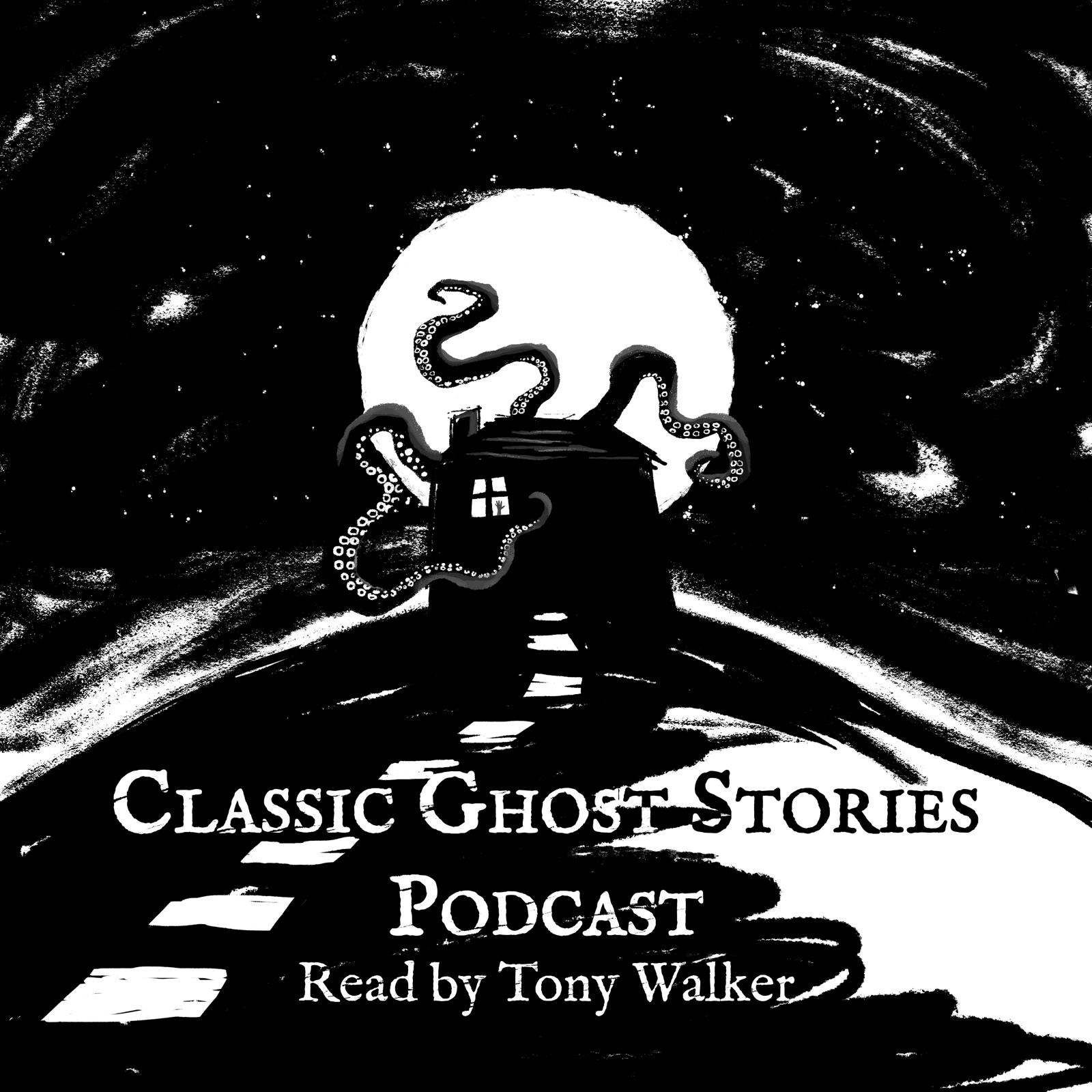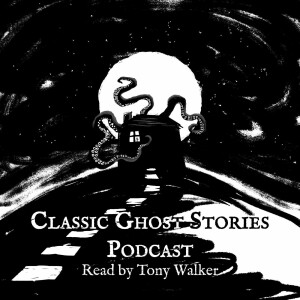
Edgar Allen Poe
Poe was an American writer born in 1809 in Boston who died aged only forty in Baltimore in 1849. He is one of the best-known American writers of his generation and famed all over the world for his Gothic and macabre tales.
This is the third of his stories we've done on The Classic Ghost Stories Podcast.
Others are The Tell-Tale Heart and The Fall of the House of Usher
The Black Cat By Edgar Allen Poe
Poe sets up his character as a mild, animal-loving child and I guess this is to show how out of character his later muderous rage is.
When he talks of an animal as a brute it is not a derogatory term and merely equivalent to the word animal. Beast is the same though in the intervening years both beast and brute have become tainted by usage connecting them with the vilest of human beings rather than dumb animals. Did you see what I did there?
Near the beginning he mentions his wife's joking belief that all black cats are witches in disguise. This is a little foreshadowing the for the supernatural powers of the black cat that are revealed towards the end of the story.
We aren't far into the story before the narrator reveals the cause of his change of character: it is through intemperance with drink. Remember the Temperance Movement (of which my grandmother was a proud supporter). Poe himself had a problem with alcohol. His death was very likely related to his alcohol abuse. In 1849, he was due to catch a ferry from Richmond, Virginia to Baltimore, Maryland. He visited a doctor in Richmond the night before he was due to travel, complaining of a fever. He arrived in Baltimore and is next seen in a tavern three days later when he was found in an alcoholic stupor wearing someone else's clothes: a cheap suit and a straw hat, not his usual black wool suit. Perhaps he had sold his own clothes for money for drink?
He was admitted to hospital and died four days later. He was drifting in and out of consciousness, hallucinating and talking nonsense. This sounds to me like Delirium Tremens from alcohol withdrawal. For people who drink heavily over a long period they can develop Wernicke-Korsakoff's syndrome which is a neurological condition caused by deficiencies of B vitamins, particularly Thiamine. It is also known as Korsakoff's Dementia.
At the time of his death Poe had recently joined a temperance society. The doctor who saw him in the tavern thought he had been on a bender and was intoxicated, but the doctor in the hospital stated Poe had not been drinking. Of course, that is what causes the withdrawal: heavy drinking with a sudden stop.
The most common causes of sudden death in people who abuse alcohol are through a seizure induced by the withdrawal, or by the bursting of blood vessels in the throat leading to catastrophic loss of blood.
There is no report of a seizure, but that doesn't mean it didn't happen.
Other theories are that Poe was assaulted and had a head injury in the tavern or that he was in late stage syphilis. This late stage syphilis filled mental institutions in the days before antibiotics and was very common—known as General Paralysis of The Insane. The doctors would have recognised this condition easily.
Getting back to the story. He mentions that Pluto was becoming old, "And consequently peevish". On the eve of my sixtieth birthday I know exactly how Pluto felt.
He is very nasty to the old cat though, and like others of Poe's protagonists, but not all (I quite like the protagonist from the House of Usher) he loses our sympathy. We are quite pleased with his ultimate destruction and getting what he deserves. Yet, we stick with him. Writers are urged to have characters that the public can root for: we don't have to approve of them, or like them, though we might (consider Dexter or Hannibal Lecter) but we must want them to succeed. For my part, I wanted this man to be caught and punished. But then, I'm a cat lover. And a dog lover too.
It is very hard to get audiences to tolerate killing an animal in a story, even though it is just a story. Poe seems to be trying to upset us, though people had harder hearts towards animals in Western culture in his day than they have now.
He hangs the cat because it loved him. He hangs it in order to commit a sin and put his soul beyond God's mercy. He clearly feels the need to be punished. This is presumably because of his alcoholism? Or is his alcoholism due to this wish to be punished? If only he were here and I could psychoanalyse Poe, but sadly he's dead, so it doesn't matter.
He find his explanation of the image of the cat in the plaster, that is that someone threw the hanged cat in through the window to wake him up and it struck the recently plastered wall, plausible. I don't.
The new black cat likes him and fawns over him and he hates it because of that. I have heard it said that cats always go to people who hate them. I have even seen that myself. I don't know why people don't like cats. Someone told me that they didn't like the feeling of their bones, that they were alive.
The second cat was missing an eye. This should have been a clue that something weird was afoot. His wife likes the cat because of that. I once went to buy a hamster and I saw a three-legged one in the pet shop and the owner told me not to buy that as it was defective and she was going to fee it to the snake. Of course I determined to buy the poor thing immediately. I took him home and we named him Tripod. He was a great climber.
I struggle to visualise how the white mark on the cat's breast that resembles a gallows. That would be very odd.
And then, his wife stops him hitting the cat with an axe, so he turns and buries the weapon in her head. He shows not the slightest remorse for slaughtering his good-natured wife. Not even a little. His first thought is how to cover up the murder. His second is to kill the cat. What a psychopath!
When he walls up his wife's corpse he describes a blissful sense of relief. The man has no conscience.
He is able to plan the disposal of the body and think out a number of ingenious methods. He does not seem in the slightest disturbed.
In fact he says that because the cat kept away from him on the night after he murdered his wife, he slept soundly.
However, he clearly had not read his own story The Tell Tale Heart because in that story too, the murder seals up the remains in the house and in that story too he has the police come round and fail to find the body until he, in his maniacal carrying on gives the game away in an almost identical manner.
So what's that about?
I think that even though this is a horrible story about a horrible man carrying out horrible deeds, it is a moral tale and its message is pretty familiar. Murder will out, and the evil will be punished for their wrong-doing by supernatural means even if they manage to evade natural detection. The protagonist's erratic behaviour towards the end of the story is what gives him away and it is not within his control.
The cat wails indeed, but first he hits the plaster with his stick. Until that time, the cat kept schtum. The cat in a sense is the conscience he doesn't have himself. I guess that the cat crept into the hole in the wall to keep away from him and got accidentally walled in.
And then it caterwauls. My boy Mungo used to caterwaul just before he got into a fight. It was a truly horrible sound and Poe describes it well.
The protagonist blames the cat for seducing him to murder. Even at the end, like all psychopaths, he cannot take responsibility for his own crime.
Listening to the edit, I hear myself misquote Jung and conflate two of his sayings. What I meant to quote was:
_“Until you make the unconscious conscious, it will direct your life and you will call it fate.”_
Music By
The Heartwood Institute
Support The Podcast Any Way You Can!
Buy the thirsty, hyperactive podcaster a cup of Java to show appreciation.
Sign Up For Exclusive Stuff And Early Bird Exposures On Patreon
Get the Substack Newsletter with Exclusives
My Ghost Stories
Get my free audiobook download, The Dalston Vampire here, and you may consider purchasing my most recent book: Haunted Castles.
This is a public episode. If you’d like to discuss this with other subscribers or get access to bonus episodes, visit tonywalker.substack.com/subscribe
More Episodes
 2024-10-22
2024-10-22
 2024-09-29
2024-09-29
 2024-09-26
2024-09-26
 2024-06-11
2024-06-11
 2024-05-24
2024-05-24
 2024-05-11
2024-05-11
 2024-05-03
2024-05-03
 2024-03-28
2024-03-28
 2024-03-22
2024-03-22
 2024-03-12
2024-03-12
 2024-03-10
2024-03-10
 2023-05-07
2023-05-07
 2023-04-15
2023-04-15
 2023-04-08
2023-04-08
 2023-04-04
2023-04-04
 2023-03-18
2023-03-18
 2023-03-11
2023-03-11
 2023-02-03
2023-02-03
Create your
podcast in
minutes
- Full-featured podcast site
- Unlimited storage and bandwidth
- Comprehensive podcast stats
- Distribute to Apple Podcasts, Spotify, and more
- Make money with your podcast
It is Free
- Privacy Policy
- Cookie Policy
- Terms of Use
- Consent Preferences
- Copyright © 2015-2024 Podbean.com






